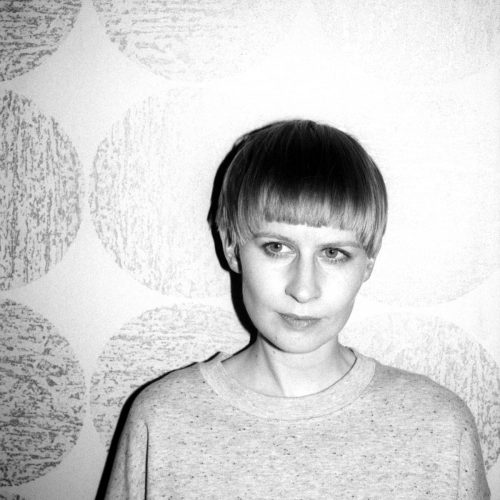Somewhere in the endless desert of West Texas, there is a Prada store. Cream-colored awnings shade the entrance from the brutal heat, displaying the name of the Italian fashion house as though it was on any upscale high street and not in the middle of the Trans-Pecos. Handbags and shoes are on display, artfully lit, waiting for prospective buyers who will never come. It is a symbol of commerce and luxury, set in a place where those concepts seem as insignificant as a tumbleweed.
It is not, of course, a real store; it’s an art exhibition, called Prada Marfa. (Marfa, a desert town with a rich community of artists, is in fact the next county over; the nearest town is tiny Valentine, a mile and a half away.) It was finished in 2005, and within a day it was beset by vandals and thieves. Undeterred, Prada Marfa stands, with a new security system and an ever-changing display of graffiti. I’d like to imagine there are still unsuspecting people who take a wrong turn off of Route 90 and end up with more questions than answers.
You might find this as cool as I do; you might call this pretentious, and everyone is entitled to their opinion. But for me, there are few words I dislike more than “pretentious.” It’s a word that punishes ambition, scorns creativity, and rejects anything more complex than a painting of a tree. We can and should judge ambitious, conceptual material on the merits, but “pretentious” dismisses even the attempt.
Jenny Hval is an artist that has been called “pretentious” by some. Her music is unapologetically arty and conceptual, and her provocations, such as her concept album about menstruation or her blunt use of a certain word referring to feminine anatomy, might strike those in the wrong mood as a bit too Maude Lebowski. But at no point does it feel like a front or a pose; more importantly, Hval has a skill with melody and musical textures that makes it all feel substantial.
“Jupiter,” Hval’s newest song, was inspired by Prada Marfa, which she describes as an “art world sphinx or oracle”: that is, something mystical you encounter in a remote setting that forces you into a sort of reckoning. “I should relate somehow,” Hval sings, in her trademark light-as-mist speak-sing. “I am an abandoned project/But also a creature/Crisp and clear like the desert.” She may feel abandoned in a lonely place, but she doesn’t define herself by this loneliness; she is a being in her own right, with her own agency.
At first, “Jupiter” seems to continue Hval’s trend towards a more accessible strain of art pop. It may lack the structure of songs like “Conceptual Romance” or “Ashes to Ashes,” but its sounds are tidy and sweet. Hand percussion and gentle turquoise synth tones guide the verses along, before the chorus arrives as abruptly and beautifully as Prada Marfa itself. Hval sings an invocation in a plaintive falsetto over crashing cymbals: “Jupiter, call her/Into the ether/Let her come.”
It may not sound like it has much to do with the narrative of the song, but that may be the point. Hval describes “Jupiter” as “a game of identification and absurd imagery,” set in “a desert-scape where values, genres, representation and relationships are breaking down.” It makes a certain kind of sense. Prada Marfa, after all, was designed to disorient: seeing a Prada store in the Texas desert would be like if the Curiosity rover discovered a shopping cart on Mars. If something as strange as that were to happen, what else could have changed? What else might we not know about?
“Jupiter” takes a long and winding path through various melodic turns and trains of thought, before the ethereal pop song we had been enjoying turns into something else. At a certain point, there are no more hooks, and no more lyrics: just ominous synth drones, one on top of the other, threatening danger as the man at the center of the music video boards a hot air balloon. As he floats off, taking in the Texas landscape, words appear on the screen: “Close your eyes. Listen. There is nothing left to see.” The screen fades to black, and eventually even the words are gone. There is only sound and uncertainty.







